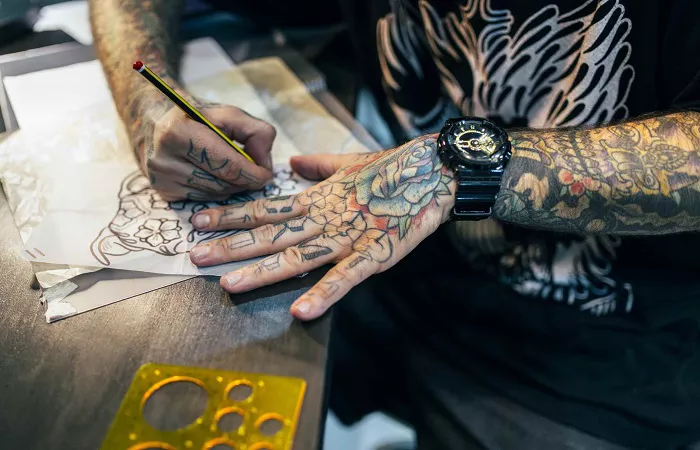In a disturbing trend, tattoos are being weaponized by U.S. immigration authorities to justify the deportation of individuals, with many facing indefinite detention in a notorious Salvadoran mega-prison. On March 15, 238 Venezuelan citizens were deported, many under the assumption that their tattoos, including innocuous symbols like soccer tributes and family dedications, marked them as members of the Tren de Aragua (TdA) gang.
Despite the U.S. Immigration and Customs Enforcement (ICE) claiming tattoos were not the primary reason for deportation, evidence from official documents shows that tattoos and clothing were central to the decision-making process. Tattoos, such as those honoring family or favorite soccer teams, were deemed “gang-affiliated” by U.S. authorities, though no substantial proof linked them to criminal activity.
For instance, Jerce Reyes Barrios, a former professional soccer player, had a tattoo of a crown over a soccer ball in honor of Real Madrid. This, along with a hand gesture he explained as sign language for “I love you,” was cited as evidence of gang ties, despite the innocent intent behind the tattoo and gesture. Similarly, Andry José Hernández Romero, a makeup artist with tattoos dedicated to his parents, had his ink interpreted as a gang symbol.
Tattoos that reflect Latinx cultural identity—such as Aztec and Mayan imagery or area codes—have long been misinterpreted as gang signs. This practice disproportionately affects Latinx individuals, while white individuals with similar tattoos rarely face the same scrutiny.
The U.S. government’s use of tattoos and even clothing—such as a Chicago Bulls jersey—as grounds for deportation is part of a broader racial profiling system. This practice criminalizes ethnic and national identities based on appearance alone, further perpetuating systemic inequality. Court documents also reveal that deported individuals have not been given due process; they were detained and deported without a fair chance to contest the evidence against them. In many cases, individuals with legal status or valid asylum claims were wrongly deported.
The arbitrary point system used by the U.S. government, as outlined in the Alien Enemy Validation Guide, adds further unpredictability and bias, as tattoos and clothing are given undue weight in determining gang affiliation. This system has led to numerous wrongful deportations, with individuals like Kilmar Armando Abrego Garcia, who had protected legal status, still being unjustly deported.
Ultimately, these actions raise serious concerns about due process, fairness, and racial discrimination in the U.S. immigration system, highlighting the need for more equitable and transparent procedures that respect individuals’ rights and cultural identities.
Related topics:

